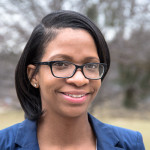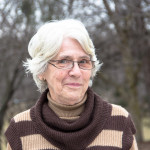OPINION: TI 106 or how i learned to stop worrying and love the truth
By NATALIE WRIGHT
The truth shines, like light passing through a stained glass window, in a spectrum of colors.
Every individual sees a world of a different hue, a world colored by his or her own senses and experiences. To each of them, that color, their fragment of the bigger picture, is the only truth they know.
The first time I went to a meeting of Washtenaw Community College’s board of trustees, on March 26, 2013, there was nowhere to stand. ML 150 was packed from side-to-side with people I had never seen before.
I found two familiar faces at a table in the back. Ben Solis and Adrian Hedden, editors of The Washtenaw Voice had been among the lucky minority to find seats. They had saved one too, in case any enterprising journalism students showed up. I grabbed the seat, and whispered “Hi,” just as the meeting was starting.
I had been contributing to The Voice for several months at this point, after taking my first journalism class in the fall. I had such tunnel vision in the chase for more bylines, scouring bulletin boards, that I missed newsroom discussions about stories hiding behind closed doors. Those are the good stories, I soon came to understand.
I don’t remember whether the editors had warned us that the board meeting would be a big one. I’m sure they did.
I’m sure they told us that Vice President of Instruction Stuart Blacklaw had been fired, angering the faculty who adored him. I’m sure I was too busy thinking about my stories to hear any of it.
But there I was in the crowded boardroom, and it was clear something big was about to happen. I was paying attention now.
One by one teachers identified themselves – not just by names, but by the subjects they taught and how many years they had been at Washtenaw. You could hear the pride in their voices – and then you could hear anger.
They explained how Blacklaw had been fired and escorted off campus, while they sat, unaware, in a faculty meeting. They expressed their fear at the loss of their chief defender and friend in an increasingly hostile environment. They pleaded for their voices to be heard, for the trustees to believe them when they said employees had seen a frightening turn in the work environment at Washtenaw since President Rose Bellanca’s hiring in 2011.
After the faculty finished, Bellanca responded. She was concerned about their perception of her.
“Change is hard,” she said.
Indeed, change is hard.
When I came to Washtenaw, I was returning home, beaten, after spending two years at Oakland University studying international relations. Inspired by a mission trip to South Africa, I hoped to do my part to right the world’s inequalities.
But two years of international politics courses drilled out of me any naive hope that I could make an impact.
I came to Washtenaw no longer hoping to change the world, just wanting to find something to do with my life.
I will never forget how terrified I was of Keith Gave, the adviser to The Voice, when I showed up to my first journalism class. He was a gristly old “journosaur” with a successful sports writing career, which he wasn’t timid about boasting.
I don’t remember his exact words on that first day, but I remember the message: Journalism is not for the faint of heart.
I, with my confidence at its lifetime low, immediately thought, “I won’t make it; better start thinking of Plan B.”
But I stayed in the class, and my writing seemed to set me apart. Soon, I saw my first few bylines in The Voice. I was excited, but even then, my self-doubt told me that I wasn’t excited enough.
“If it’s for you, you’ll know,” Gave said. “It’ll hook you with that first byline.”
I wasn’t hooked right away, but I enjoyed writing, and maybe that was good enough.
I’m so grateful that, for a moment, I thought settling was the best option because the thing I settled for grabbed hold of my heart at that first board meeting.
After Bellanca concluded her remarks, the faculty stormed out of the meeting. As my body pulsed with adrenaline, I chased after them. That day, I became a journalist.
Journalists should be unbiased. That’s the one thing everyone who has never studied journalism can tell you.
I’ve never subscribed to this standard. Journalists, just as every other human being, interpret the world through their own eyes and ears.
The facts a journalist gathers are shaped by a lifetime of experiences before they ever reach a notepad. With every syntax and structure choice, we impose our perception on the reader.
Instead, journalists should focus on being fair and getting as close to the full truth as possible. Our job is to gather as many of the fragments, as many individual truths as we can and to assemble them into a discernable narrative.
In my second year at The Voice, as managing editor, my No. 1 goal became seeking out truth that would benefit students. The students didn’t care about the politics of the college; they cared about their education. So I took up the cause of obtaining the Student Opinion Questionnaires – surveys students fill out rating their teachers. I wanted to publish them to give students more information when they register.
I learned how to use the Freedom of Information Act to request public records from the college. I consulted with a lawyer about the legality of the college holding these records from the public eye. I got them released after four months, and made a lot of people angry.
“Someone is always going to be angry at you,” Gave said. “If you’re making everyone angry, it just means you’re really doing something right.”
I’m glad I believed him. I wanted to chase down more stories that would make people angry, more stories that could change the world around me.
About year after my first board meeting, the faculty rose to action again. After a relatively quiet year, some thought perhaps they had begun to work out their issues with the administration. But in May 2014, WCC’s faculty union overwhelmingly passed a vote of “no confidence” in Bellanca. Their reasons were many.
First and foremost, they were being left out of decision-making, they said, and they were sick of being talked at.
Shortly before the vote, four academic deans resigned within the same week for what the college said were “personal reasons.” We could not get more of an answer out of the deans, though colleagues suggested there was more to the story. The VPI position remained in interim status for more than a year after Blacklaw’s firing, with no clear plan to find a successor.
An increasing amount of work was being outsourced to consultants that could be done by college employees, the faculty said, and some of these consultants had eerie ties to Bellanca.
Money was inflating the administration while the classrooms suffered. At this time, there were seven vice presidents – five more than when Bellanca was hired. (There are eight now.)
Especially concerning were the whispers that the non academic vice presidents were bypassing the academic chain of command to create credit courses without the knowledge or endorsement of the faculty.
However, the no confidence vote was met with dismissal and mockery by the trustees. One trustee called it “uncivilized” and “a publicity stunt” in the media.
So the faculty took their grievances to the next level, contacting the Higher Learning Commission, WCC’s accrediting body, with a complaint challenging the college’s ability to meet accreditation standards.
That summer I became editor of The Voice, and I felt that change was in the air at WCC.
Meanwhile, news about the turmoil on campus was spreading into the broader community. With a millage and three trustee seats expected on the Washtenaw County ballot in the fall, the college’s future could be immediately impacted by its public perception.
Soon, we found out the millage would no longer be up for a vote that fall. The college denied that it ever planned on it.
During this time, reporters from various local publications started calling me. A concerned community member asked me to go on a local radio show to speak about WCC and Bellanca. I was paralyzed. I chose not to speak on the record about anything. Writing the news is my job, I decided, not being the news.
Around this time, I set up a non-WCC email account at the suggestion of my adviser. Even if our own paranoia was unjustified, he said, many in the college shared the same paranoia, and having a separate email address could put them at ease.
It worked. After I had shared my new address with a handful of teachers, I received a flood of emails from college employees with tips and messages of support.
“You guys could single-handedly save this place from imploding,” one said. “It’s bad. Your paper has never been more important than this moment in history. Please, don’t give up. Nobody will listen.”
The burden felt enormous, but I made the conscious decision to accept it. No longer would I assume failure. It was time to believe I could make a difference again.
The first story I had my eye on was the renewal of Bellanca’s contract, expected to happen in June, as it had every year before. There wasn’t a peep about it all summer.
Then, in early October The Ann Arbor News ran an article on it’s front page about Bellanca racking up $120,000 on her college-purchase card in three years, much of which was spent on alcohol and travel expenses. The article was written by former Voice editor Matt Durr.
“This is the end to it,” I thought. “They’ll have to get rid of her now.”
Although purchasing alcohol was technically against the rules, it’s one of those rules that you can overlook in certain situations, the board chair explained to me. Clearly, this business was beyond my level of comprehension. Silly me, thinking when the tax payers pledge their money to education, it should not be used to fund cocktail parties at the president’s house.
I didn’t speak to Bellanca about this until several months later, and by then, she had some pretty colorful explanations for the expenses. The most unbelievable: Her college credit card was the same color as her personal credit card, and sometimes, she just mixed them up.
Also in the early fall, I learned that a teacher who had taught part time at WCC for 10 years was suing the school for gender discrimination and that liaison meetings between Bellanca and the faculty union had ceased.
In late October, the trustees extended Bellanca’s contract and awarded her a raise, with no discussion or explanation, no acknowledgement of all the anger and fear circling her.
In November, the Washtenaw County voters made it clear they wanted change at WCC with the election of three new trustees, including former Voice online editor Christina Fleming. I felt we had made a truly tangible difference with our coverage of the election and our endorsements of the three winning candidates.
Since then, the back-and-forth between the faculty and administration has continued. The low drone of the same circular arguments echoed in my head all semester as I passed unknowing students in the hallways. The frigid atmosphere at WCC matched the dreary winter outside.
When the new trustees joined the board in January, they changed things up – asking challenging questions, calling out the lack of trust, presenting alternative proposals and even voting “no” – something I had never seen in my three years.
Yet, with only three of seven votes, the newly elected leaders cannot take any real action. What they can do is help track down truths to the numerous questions surrounding WCC’s administration and President Bellanca.
Despite the best efforts of the new trustees, the board passed a tuition hike for next fall. One board member argued that the college must increase tuition or risk going bankrupt.
It made my stomach sick. Maybe if the president stopped racking up liquor store purchases on the college’s dime, the students could get a break. This didn’t come up at the board meeting, unfortunately.
Bad news continues to roll out of Washtenaw’s offices – the college’s therapist positions have been eliminated worsening the situation for a counseling department already stretched thin and one of the few administrators still trusted by lower-level employees has disappeared from campus completely, with no explanation from the college. There is still no permanent vice president of instruction, two years later.
I thought this year, my year as editor, was the year for change. I guess that naïve optimism still hasn’t been completely drilled out of me.
Throughout these three years, our newspaper staff has tried to do one thing: To serve WCC and its community by sharing the fragments of the truth we can find. We have tried to make a difference simply by paying attention and holding people to their words. We have tried, but part of me still feels we have failed because the atmosphere here is as bad as ever, but bigger part of me feels that we succeeded because we really made some people angry.
Life in TI 106 got a lot harder when we started writing stories that made people angry. Even at our most cynical, we wouldn’t dare to believe that educators would punish students for the sake of a political agenda. All we can do is tell you our fragment of the truth.
One day, just before WCC’s campus was flooded with hundreds of visiting skilled trades workers for a summer conference, a bizarre thing happened. Overnight, our latest issue, with Bellanca’s photo on the front page below a bold “No confidence” headline mysteriously disappeared from newsstands across campus.
We informed campus security of the theft, but the perpetrator was never caught.
There were a number of people, we thought, who wouldn’t want campus visitors to see that issue, but we tried not to assume the worst.
Then, last spring, administrators told us that Voice staff members would no longer be paid as employees of the college, and instead we would receive scholarships for our work. We were nervous because the change seemed sudden. What would the results be, intended or not? Nothing, they assured us.
By the fall, it was clear there would be consequences. Students’ other financial aid packages were put at risk because of the new scholarship, and because we were no longer “employees,” we could not be on campus after 10 p.m.
This was devastating to a staff of dedicated reporters and designers who truly loved camping out in the college until 3 a.m. We didn’t need to – we only got paid for 15 hours a week – but we cared so much about this newspaper, we spent every waking moment here. We wanted to fight back, but it seemed there was no hope.
Then, at our first staff meeting of the fall, three administrators showed up at our door (the word “ambush” seems appropriate) and told us that our adviser would be gone, effective immediately. Of course, he wasn’t fired, they assured us. He was needed to fill in a desperate hole in Student Activities pushing paperwork across a desk. A man who worked in the journalism industry for decades would become a low-level beaureucrat at a community college? Not a chance.
Gave planned to quit, but our staff rallied and made pleas at a board of trustees meeting. If this was going to happen, we certainly wouldn’t let it happen quietly. Did they really ever expect us to?
We planned to leave the paper if this wasn’t resolved. We planned to start our own online publication, which we would work for, unpaid, to continue to write about the college.
A few days later, our adviser was back, with no explanation, no apology.
The semester went by, and we felt that we had won the battle. The worst had been done to us, and we came out relatively unscathed.
But when Gave left Washtenaw in December to return to his sports writing career, our difficulties with the administration continued.
A new adviser would be hired by the end of the year. That was the goal they promised to work toward. We had to beg to publish our paper without one. An adviser is crucial, we said, and we need one as soon as possible, but we don’t want to disappear until then. After a two-month delay, we were allowed to put out a newspaper.
Soon after, a copy of a letter from the president to the college’s faculty and staff made its way back to our office.
“Current editors Natalie Wright and Emily Stout have asked for their independence to provide leadership for The Washtenaw Voice for the winter semester,” it said. “They feel strongly that, under their leadership, the Voice student staff can run the paper on their own for the remainder of this semester without a coordinator.”
That was not what we said. There must have been some miscommunication. This administration is not used to listening to people, though, so who can fault them for being out of practice?
As a result of this miscommunication, The Voice still has no adviser. The college plans to post the job this month, administrators told us, but how can we be expected to believe that?
Without an adviser, I have spent much more time managing logistics, filling out paperwork and conversing with administrators than I have reporting. I, along with other newsroom leaders, have had to fill the void of a full-time teacher.
“It’s good experience, though!” Bellanca recently assured me. But she doesn’t understand, I’m losing out on the experience I need – reporting and writing. Or maybe she does understand, and maybe she’s relieved.
Without an adviser here to act as an advocate for student needs, we fear more “unintended” consequences may befall the students who carry The Voice into next year. Administrators are already talking about increasing the required credit hours for Voice staff and making vague threats about not allowing them to attend the national conference in the fall.
Surely the administration isn’t seeing how this will affect the quality of the paper and the educational experience that is The Voice. For years, students in this room have raised the bar every semester, solidifying the newspaper’s reputation, not only as one of the best college newspapers in the nation, but as one of the best newspapers in Washtenaw County, among professional competitors. These consequences of going on without an adviser put The Voice, as an institution, at serious risk – unintentionally, of course.
Each of these stories, some of which have merited headlines and some of which have not, show a sliver of the truth of what is happening at WCC. We have long said at The Voice that we are the first student group to feel the consequences of the chaos and corruption here, or at least to know we’re feeling them. I hope that sharing our fragments of the truth can inspire you to do the same.
I can’t count the number of employees I have talked to in my three years on this campus who have told me just how much they hate the atmosphere Bellanca has created. They are willing to whisper and to push us in the right direction, but when we ask the ominous, “Can you say this on the record?” they recoil, scalded by the thought. Fear is a powerful motivator, but it is one we must ignore if we want to see change.
If we want the truth to shine in every dark and quiet nook, on every twisted word and every hidden agenda, we must hold our fragments up to the sun, consequences be damned. Be brave, WCC, and tell your truth.
 Column: Taught to teach ourselves
Column: Taught to teach ourselves
By EJ STOUT
Never before have I found such fulfillment than I have during my time as managing editor at The Voice.
I arrived at Washtenaw in the fall of 2009 after a short-lived stint out of state. I spent a few years going through the photography program and then transitioned into graphic design, all while working full-time on the side. I knew that I wanted to be in the creative arts, but I struggled with feeling untapped and uninspired.
It only took one meeting in TI 106 for those feelings to dissipate. Here was an intelligent, engaging, witty, snarky group of people who worshipped grammar and revered punctuation. Hell yes.
What started as a job in page design quickly grew into a newfound sense of ownership. Here was my chance to combine all of my creative passions into one. I wanted to be involved, make suggestions, fight for solutions.
As I moved into my role as managing editor and creative director, the newsroom became my home, and the people in it, my family.
We went through many ups and downs in my first year, but it wasn’t until this past fall that we really learned to fight.
It was a painful experience, losing Keith Gave in December. We knew the fallout was going to be difficult, but we had no idea exactly what was in store.
Most of our staff had never met Pete Leshkevich before he sent out a blast email alerting them of Gave’s departure. We had asked that we deliver the news to the staff ourselves, but we were denied the ability to act as leaders to our own team.
As tensions rose, questions swirled and fear of the unknown loomed, we wanted to protect our whole staff – to guide them through this transition and help make the next semester run as smoothly as possible.
So we played along. We spent hours meeting with our superiors, talking through the needs and goals of each student, and we waited patiently as they pushed our start date back further and further.
According to that first blast email, we had been assured that the college was committed to providing “appropriate advising support” in the coming semester. We wanted to believe it. We pushed through fears of naivety and allowed them the benefit of the doubt.
We did everything they asked of us.
And whether it was beyond their control or simply an all-too-familiar “misunderstanding,” we never did get that adviser.
Would a student publication without a seasoned adviser strip us of our credibility? It seems ridiculous to think that anyone would hope for honest mistakes to pile up and to watch our authority and impact as a publication dwindle and die.
No one could be so caught up in preserving their image that they didn’t care who suffered as a result.
Or would our new autonomy only deepen our sense of confidence and raise the standards we now had to set for ourselves?
We might not have been given a title – and we certainly weren’t getting paid for it – but, by all accounts, we were expected to become our own teachers.
When I expressed fears about the future of the paper, I had instructors tell me, “This administration can do whatever the f— they want.”
After months spent witnessing tensions between faculty, staff and administration, it’s easy to see how instructors on this campus could feel so defeated.
The faculty have grown weary of fighting. They’ve spent two years distracted from what brought them to this college in the first place – students. So with many faculty retreating to hunker down and wait it out, the burden of fighting slipped further down the line.
As I continued to stumble through the hallways in preparation to graduate, my schoolwork inevitably suffered. It wasn’t just about me anymore. I now felt a much greater sense of responsibility to my team in the newsroom and the student body as a whole.
Despite encouraging comments behind closed doors, the severity of our situation became hard to deny.
No one was going to fight for us.
The atmosphere of fear, intimidation and manipulation that seemed only to circulate in third-floor offices and staff meetings had finally hit students.
With our training wheels ripped off, we set about creating our own code of ethics – both inside and outside the newsroom. What kind of people did we want to be? What values did we most want to emulate? Were we content to follow the chaotic example of miscommunication and misunderstanding set by those supposed to be guiding our futures?
Or did we have our own voice?
We became stronger, no longer fooled by vacant smiles or empty promises.
We could no longer rely on a safety net to catch our mistakes – we had to pour over our reporting and writing to ensure the utmost accuracy and credibility. Instead of being scared and unsure, we had to trust in ourselves, our instincts and the power we held as a unified team.
When Shel Silverstein wrote his poem “The Voice,” he couldn’t predict how meaningful it would be to a confused young reporter searching for answers.
There is a voice inside of you
That whispers all day long,
“I feel that this is right for me,
I know that this is wrong.”
No teacher, preacher, parent, friend
Or wise man can decide
What’s right for you – just listen to
The voice that speaks inside.
This place, this experience, has left a permanent mark on me in more ways than one. It’s been one of the hardest seasons of my life, yet I haven’t lost the feeling of excitement whenever I walk through the newsroom doors.
It has ripped me apart, taught me to question everything – most of all myself. It has reintroduced me to my creative passions and formed me into a meaningful member of my community.
It’s created unbreakable bonds within the team who have walked with me hand-in-hand on this intimate journey, and I couldn’t have gotten through this without their unwavering support.
Six years within the walls of this college have changed my course forever. I came here dejected and untapped, not sure how to change my past mistakes into successes – or whether it was even possible.
I wouldn’t have stayed here so long if I didn’t absolutely love this college. I love my instructors; I love my classmates; I love my coworkers, and I don’t take for granted the opportunities here that many students across the nation are never afforded.
So when I walked out of my last class at Washtenaw, I cried.
I cried for the abandonment I felt during my last semester, and I cried for the future of this paper and the future of every student on campus.
I can only hope that the cycle of disregard for students can be reversed and repaired, and that teachers who have retreated in fear have the courage to step up once again and advocate for those who need this institution most.
Looking ahead
By TAYLOR ROBINSON
I’m not much for having regrets. However, I do wish I would have come to WCC sooner. Although I’ve only been here since the fall of 2014, this place has become a second home - more specifically TI 106, The Washtenaw Voice newsroom.
After receiving my first associate degree from another institution, I took a break from classes to decide what I really wanted to go back to school for. I came to the realization that whatever I chose to do it would have to consist of people, community and – most importantly to me – the truth. I’ve found all those things working for The Voice.
I want to thank Paula Bartha in the counseling office. Without her encouragement of “I better see your name in the college newspaper,” I wouldn’t have thought to become a part of a new family.
Proudly, I can say my name has been in the paper more times than I can count. Without her, Keith Gave, my editors and the rest of the team, I may have never unveiled my passion for newswriting and reporting.
These last two semesters, I’ve met more interesting people than I ever thought I’d meet. A simple phone interview turned into a behind-the-scenes look at Erebus Haunted Attraction during the Halloween season. I’ve talked with numerous talented musicians and performing arts students and faculty. I’ve walked the streets of Ann Arbor and Ypsilanti, approaching strangers and learning about their lives. I’ve honestly learned more from just being in the newsroom environment than I ever have in a classroom. This newsroom is the best classroom for anyone wanting to pursue a degree or who just has an interest in journalism.
Coming to WCC just to get my feet wet in the journalism world has provided me with the opportunity to be the next editor of your paper. I am beyond honored that Natalie Wright and Emily Stout are passing the reigns to me, my right-hand girl and Managing Editor Sofia Lynch, and our invaluable Photo Editor Gray Bancroft.
Being a part of this newspaper has opened my eyes to what really goes on behind the scenes at a community college. Students need to feel that they are the most important people on this campus, because they are. Their voices need to be heard above all others. Not just heard, but listened to, acknowledged and appreciated. Without these students, this campus would be nothing but buildings and patches of grass.
The Voice is preparing for quite a shift in its staff. Editors are moving forward with their lives and our designers are moving on as well. Their talent and quirkiness will be missed mostly because they’ve become my friends.
Our kickass team consists of fresh faces, fresh talent and a thirst to continue to provide the truth to our dedicated readers. Although some may not necessarily like everything we publish, it’s all in the best interest of you, the students. One thing I’ve learned about newswriting is that the public should be reading things they need to know, not always just the things they want to know. I strive to give you both.
The Voice lives on
By SOFIA LYNCH
There are three things about The Washtenaw Voice that I don’t think are made quite clear to our readers and our fellow WCC inhabitants that are important to understand when reading our paper. As the prospective managing editor for the paper next year, it is important to me – and I believe to my cohort and future editor Taylor Robinson, as well – that these factors are taken into consideration.
The first is that there is a staff of about 12 total students putting their blood, sweat and literal tears into the paper that you make hats of in the hallways or leave listlessly on end tables. A handful of students, balancing class work and jobs, spend every free moment they have in the newsroom or glued to their laptops hammering out stories, trying to make deadline.
What we do is by choice. Despite the fact that we know students aren’t ripping our papers from the stands, everything we do is for them. Every story about boring board policy and dense administration changes is ultimately for the students. Which brings me to the second piece.
We are not here to demonize the administration. We are here to broadcast what is in the best interest of the students, and, above all, we are here to broadcast the truth. If the truth paints an ugly picture, don’t shoot the messenger. Outside of columns and editorials, everything written and printed for The Voice is gathered from reporting. We portray every factual piece that we can gather to make sure we tell a complete story.
And finally, there is the fact that, since we lost our past adviser, Keith Gave, a little before Christmastime, we have still pushed on ahead and brought out papers continuously adviser-less. If not for the leadership and strength of Natalie Wright, the editor, and Emily Stout, the managing editor, The Washtenaw Voice may have seen yet another end of days.
This past year has been a brutal one. I don’t think there was a single staff member who wasn’t mentally and emotionally brought to the brink. I can’t speak for everyone, but for me, pushing myself as a full-time student and full-time writer has made me mature exponentially and see responsibility in a different light.
This year has been fruitful in many other ways as well. We won multiple awards at both conferences that we attended this year. Personally, I walked away with first place for a personality profile award from the Michigan Community College Press Association. I don’t think I’ve ever, before that moment, experienced having tears in my eyes from pride in myself.
Aside from that, I have learned what it really means to work for a team and have been so grateful for the wonderful people that I have gotten to work alongside. It has been an honor spending the year so close – literally close; our office is a shoebox – with such driven and inspiring people.
I may only be 19, but with the experience I’ve gained over this past year, personally and professionally, I believe I will welcome next year well equipped. With Taylor by my side, we intend to put ourselves wholly into making sure The Voice appeals more to the students for whom we write. I hope that our entire readership can trust that the paper will still be in good hands.
The only thing more there is to say is just keep your eyes open, keep the faith and read on.
By Paulette Parker
There has been no shortage of stress during my year at The Voice, but also no shortage of satisfaction. I walked into newsroom in the fall of 2014 as a nontraditional, returning student with little journalism experience. It had been five years since I had even taken an introduction journalism course. Yet somehow, I made my way from contributor to news editor.
This year at The Voice has been amazing. I used to cringe at the thought of approaching random strangers and asking them questions. And now I’ve interviewed more people than I can count. I’ve learned more in the four walls of the newsroom by “doing” than I will probably ever learn in a journalism classroom. It’s a place where no one is going to do the work for you, but you have support from a team of people who have so much to offer. No feeling has compared to picking up a paper every other Monday and seeing my name in a byline (or many) and seeing the results of my hard work. I’ve made great friends and gained great experience. I feel like my journalism career began here. As I move on to EMU to complete my bachelor’s, it is bittersweet. But I know my experience here has prepared me for whatever comes next.
By Ben Ellsworth
Before working at the newspaper, I didn’t care about trustee meetings. I didn’t care about budget proposals. I wasn’t aware of any of the intricate machinations of the president and the board. If you’re in the same position as I was, idly reading the paper while on the toilet or just out of boredom, then consider making The Voice your go-to pooping companion.
This shit is ridiculous. Laugh at the board’s many quirks. Chuckle at Bellanca’s most recent hijinks. Giggle at the latest gaffes. Most importantly, care about what’s going on at your college. There are a lot of great things going on here at WCC, but some smell distinctly of fish.
For our regular readers: I hope you all enjoyed the changes and experiments we designers have conducted with the paper this year. Newspaper design is a unique beast and takes some getting used to. We tried to step away from more traditional (read: boring) layouts and make the newspaper experience more entertaining for our readers.
I’ve certainly learned quite a bit during my time here about grid structure, picas, justified type and other “designerly” things that no one else cares about. Working for The Voice, I’ve made new friends, honed my own skills and played some ridiculous games of Cards Against Humanity. Thank you to my coworkers for a wonderful final year at WCC and to our readers for bothering to read what I have to say.
By Erik Morris
I’ve accomplished more than I would have expected in the two years that I have worked with The Voice. I’ve improved my digital illustration skills exponentially since I first started. I abandoned my burning hatred towards Adobe InDesign and learned to love it for what it is. I finally learned that I should always budget three times as much time as I think I need for every project. I’ve gone to conventions, won design awards, learned more about college administrative politics than I ever thought possible and, ironically, even been featured in the school’s competing publication multiple times.
As a design team, we have put countless hours of work into making this paper look as visually appealing as possible. And though I can’t, without bias, evaluate my own work, I like to think we’ve succeeded. Just as our predecessors out-performed the designers before them, I think this year’s papers look better than they ever have. And I’m definitely excited to see what next year’s staff members will produce.
I am not a sentimental person. In all 20 years of my existence, there have only been two groups of people I’ve been genuinely disappointed to leave. The Voice staff will be number three. After spending more hours than I care to mention in room TI 106, I can safely say that every staff member here is an awesome person. When Kristine Willimann first mentioned a job opening at The Voice to me two years ago, I never could have anticipated that it would become such a major anchor point in my life. This job has been great, and I look forward to seeing how the paper improves next year.
By Erin Fedeson
People have dreams of where they want to be and what they want to become. Often, those dreams are placed on the backburner until they evaporate into vapors of wistful memory.
I dared to take my dream of being a published writer off the backburner by stepping into the Washtenaw Voice newsroom.
Before The Voice, I loathed the idea of writing articles.
I feared the newspaper’s rigid rules of AP style would choke and leave my creative writing as an empty husk.
Yet the core of my fear was rejection and being incapable of producing quality work worthy of being published.
However, the Voice newsroom welcomed my writing and coached me through the tricky world of journalism.
It taught me creativity and reporting can create a unique blend of writing I could be proud to share.
Working for The Voice has been a roller-coaster of triumph and defeat as well as laughter and tears.
I would happily go through it all again as this experience made me a better person and writer.
I am sad to leave The Voice, but my articles frame my ultimate dream, as published author or screenwriter, framed for the eventual bull’s eye in my future.
By Nina Di Mauro
Until the winter of 2014, I was simply a student with strong opinions on serial commas. So when I began working for The Voice, omitting serial commas was something I had to overcome. I have learned so much working here, including that one can still hold personal style opinions and accept AP Style at the same time. Learning new style guides is one of the great joys in life, and not agreeing with every rule is no reason to reject it.
In the Voice newsroom, a conversation about hyphens or composition titles is not abnormal – and I love that. I have had very memorable times with the staff, and, although my job is “backstage,” they have made me feel welcome.
I owe my greatest thanks/undying love to Dave Waskin, without whom I would not have had this opportunity. Thank you to the staff for being truly phenomenal. Also, a huge thanks to AP Style: I hate you, but you are always there for me.
I can’t wait to see where this newspaper goes from here.
By Sanaa Naeem
I distinctly remember a thought coming to me while I was in the middle of a Voice project: “I’m drawing caramel strutting down a runway for a newspaper. Huh. Never thought I’d be doing that with my life.”
But that’s what I love about working for The Washtenaw Voice. When I do art for myself, be it some one-off thing or a story-related topic, I typically draw things that I personally think to draw: a comic, something TF2-related and scenes from my stories, all in among character portraits.
Working for The Washtenaw Voice offers artistic challenges I probably wouldn’t encounter otherwise. Best of all, it seems like I’m always drawing something new and something weird. That’s pure stimulation for an artist right there.
Lots of people love college for the new friends or the fun parties. As for me, I love this art I can walk away with. From living sugar to dinosaurs to a pickle in a Christmas tree, the bizarre things I’ve gotten to draw are things I can look back on and say, “That was a weird thing I did.” I have to thank The Washtenaw Voice for that, because, if you ask me, that’s pretty cool.
By Gray Bancroft
At the beginning of the winter semester, I was eager to begin taking pictures for The Voice. I have never worked in this kind of environment, and I was excited to try something new. Every assignment given to me presented its own set of challenges. These challenges have helped me grow as a photographer throughout the semester. Now I look forward to the fall semester to face a new “can of worms” as next year’s photography editor. Also, I would like to congratulate all of the Voice staff that will be graduating this semester. Thanks for everything.
By Becky Alliston
Every year has been such a different experience and full of many great adventures. The last four and a half years have opened my eyes to another world out there: the world of journalism. Although advertising is removed from the day-to-day writing and designing segments of journalism, I have learned so much on how the full picture comes together. Every year has been a different experience, and each has had its own trials – this year being no exception. This staff has risen to each challenge and provided us all with a great newspaper and, again, many awards. I will miss those leaving and am looking forward to the next chapter in the life of The Voice.
I’ve only spent a few short months here at The Voice, but those 18 weeks (approximately), 126 days (2015 was not a leap year) and 3,023 hours (Daylight Savings Time) have made me feel like I belong in our little office, and more largely, like I belong at WCC. I was even given a nickname, which I have fully embraced, leaving me to explain to every confused newcomer that no, Tini is not my real name. I’ve been given the opportunity to grow as a writer and person and I’m indescribably grateful for that, as well as the time I got to spend learning the ins and outs of producing a newspaper under Natalie Wright and EJ Stout. I’m so excited to see what the next two semesters, 254 days, and 6,048 hours hold for us here at The Voice.












